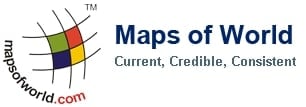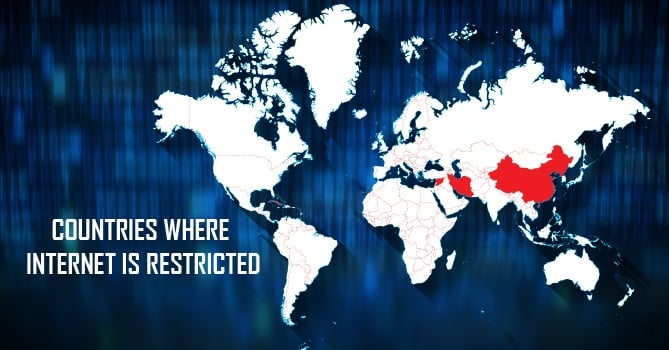At a time when net neutrality is being hotly debated all over the world, there are a few countries that severely restrict the usage of the internet. In many of these countries speaking out your mind can lead to imprisonment or in extreme cases even execution.
Let us take a look at some countries where internet is controlled by the government and going against it may lead you to trouble.
North Korea
North Korea is notoriously isolated. But what would come as a shock to internet lovers around the world is the fact that for most of the North Koreans this privilege is non-existent. The internet is under government control and as per reports, about four percent of the total population has access to it. These are basically some ambassadors, government officials, and outside assistance groups. There are 1,024 known IP addresses in North Korea as compared to some 1.5 billion in the United States. So the question is how do people in North Korea go about their lives without internet. Here, the ordinary people get access to Kwangmyong, which opened in the year 2000 and is a national, walled-off intranet, or simply called a pseudo internet. But the catch is that it has around 5,500 websites and information is limited as people are only able to see what the government wants them to.
Cuba
The internet in Cuba is tightly controlled by the government. The ICT environment of Cuba is characterized by slow connectivity and high prices make it unaffordable for a large section of the society, and heavy government regulation. The government has set up Wi-Fi hotspots in a few places but accessing these would cost an average Cuban about a tenth of his monthly salary.
But things seem to be changing for the better. The country recently announced that broadband internet service would be launched in two pilot projects in the capital Havana. This comes as a breather to scores of citizens who had to resort to innovative ways to access the internet and create apps. The launch of broadband would definitely lead to a change in the life of people, at least those living in Havana.
Iran
Iran is another nation where the internet is highly regulated. Reports suggest that only 40 million people use internet in the country. This is not a significant number in a country which has around 78 million people. The government has banned many western media sites such as YouTube, Facebook, and Twitter. As Iran is a conservative nation, pornographic sites are heavily banned but many sites pertaining to society, art and news are also not accessible. The government also filters traffic based on its content. However, the youth of the nation has a way of bypassing that. A recent survey, which was released by the nation’s ministry of youth and sports, said that about 70 percent of the youth of the nation surfed the internet using anti-filters.
China
An economic powerhouse which is famed for its companies such as Lenovo and Alibaba, China also has one of the most rigid censorships. There are an estimated more than 600 million people in China who use the internet. However, the government resorts to the Great Fire Wall, which is an extensive Internet filtering and censorship system. Searches are filtered, sites are blocked and any content that is considered inconvenient is erased, especially pertaining to Tiananmen Square massacre or independence of Taiwan. Sites like Twitter, Facebook and Google are either blocked or severely restricted.
Syria
War-torn Syria will definitely find a place on the list of countries where the Internet is severely restricted. Since 2011, when civil war broke out in the country, the government has heavily curbed internet and other means of communication. The government has used systems which have been instrumental in preventing the spread of images as well as news that show the official campaigns to destroy rebellions against it. The government of Syria monitors the internet very closely. Citizens have also been arrested for expressing their opinions.

